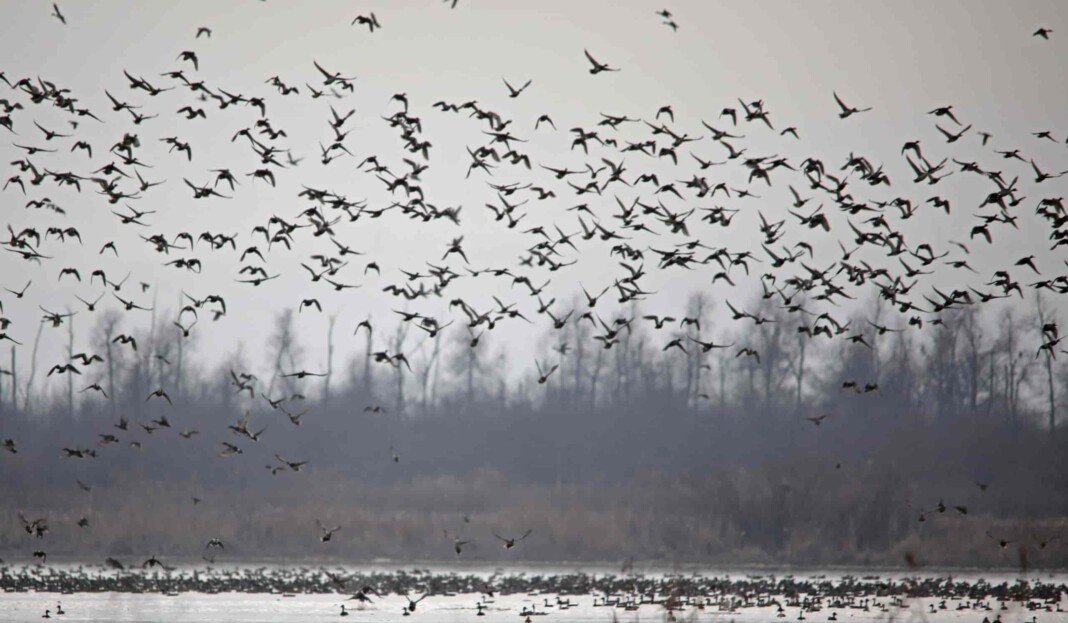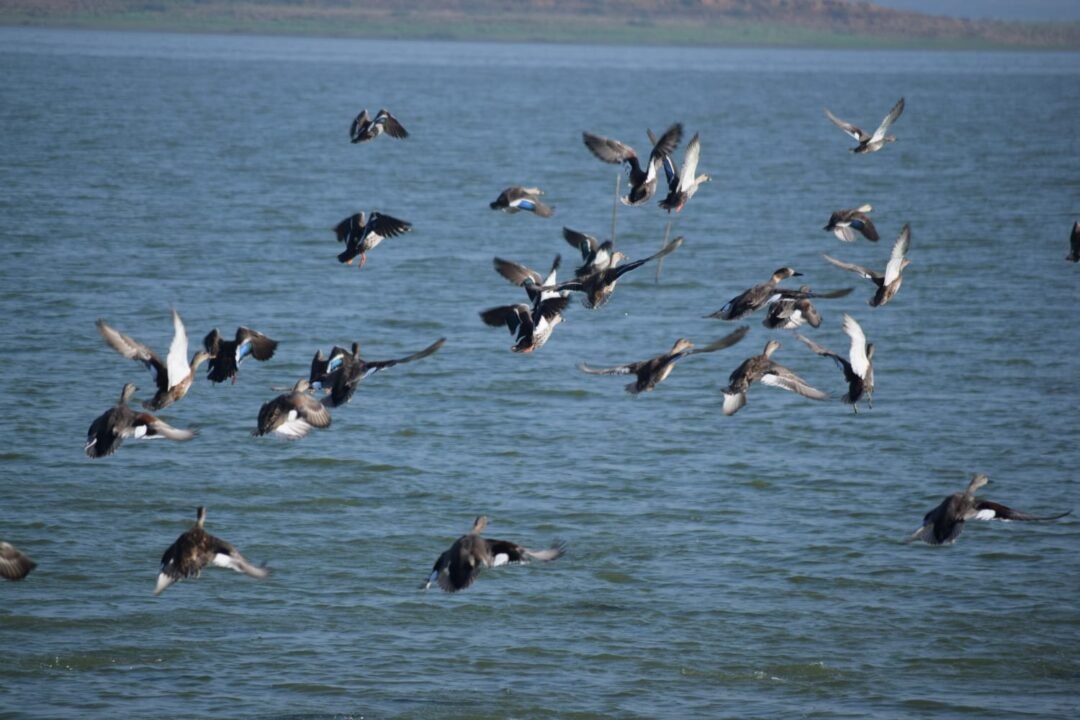HT Digital
Tuesday, October 8: In a heartbreaking event in Dhakuakhana, Assam, more than 50 migratory bird chicks died after a large branch of a tree broke and fell on Sunday. The incident occurred in the Khojuwa area, located along the Dhakuakhana-Ghunasuti PWD Road, and has drawn attention to the plight of migratory birds that find refuge in the region’s tall trees.
The tree, which was home to a large number of migratory bird chicks, collapsed unexpectedly when its branch snapped, causing the young birds to fall to their deaths. These chicks belonged to various migratory bird species, including egrets and cranes, among others. These birds, which flock to the region every year during the migratory season, typically settle in the treetops to nest and rear their young. Unfortunately, the natural habitat they rely on proved fatal in this instance.
The area along the Dhakuakhana-Ghunasuti PWD Road is lined with tall trees that provide shelter to a wide variety of bird species, both native and migratory. Birds like egrets, cranes, and other declining species have long used these trees as nesting sites. These species, some of which are already facing threats due to habitat loss and environmental degradation, now face additional challenges from such natural accidents. Local residents and environmentalists expressed their sorrow at the loss of such a significant number of birds in one tragic incident, emphasizing the delicate balance that exists between nature and wildlife.
According to reports from the area, the branch gave way suddenly, possibly weakened by recent weather conditions or age. There had been no warning signs of the impending disaster, and as the branch broke off, it plummeted to the ground, taking the nests and chicks along with it. By the time locals arrived at the scene, more than 50 chicks had already perished. The exact number of birds affected might even be higher, as some of the injured chicks could not be recovered immediately.
This tragic incident has highlighted the vulnerability of migratory birds, whose survival already depends on fragile ecosystems. These birds travel great distances to find suitable nesting grounds, often returning to the same locations year after year. However, deforestation, habitat destruction, and climate change have already placed many migratory species at risk. The loss of these young chicks is a blow to the local bird population, further endangering species that are already facing challenges in maintaining their numbers.
Local wildlife officials have been alerted to the situation and are currently investigating the cause of the branch’s collapse. While it appears to be a natural occurrence, officials are considering whether measures can be put in place to prevent such accidents in the future. One potential solution might be increased monitoring of trees used as nesting sites by migratory birds. This could help identify any trees or branches that pose a risk of collapse, allowing them to be trimmed or supported before they become hazardous.
Environmental groups in Assam have also voiced their concerns following the incident. They are calling for more robust efforts to protect the habitats of migratory birds, particularly in areas where human activity and natural habitats intersect. While the Dhakuakhana area is relatively rural, the increasing pressure on wildlife from human development is undeniable. Conservationists are advocating for stricter protections for nesting sites and an increase in the number of protected areas for migratory birds.
The local community, known for its rich biodiversity and deep connection to nature, has expressed its shock and sadness at the loss. Many residents have grown accustomed to the sight of these birds every year, watching them settle in the tall trees that line the roads and fields. The loss of so many young birds has stirred a sense of urgency to take better care of the natural environment and ensure that future generations of migratory birds can continue to thrive in the area.
As efforts continue to address the immediate aftermath of the tragedy, the incident serves as a stark reminder of the need for ongoing conservation efforts. Protecting migratory bird species is not only vital for preserving biodiversity but also for maintaining the ecological balance that these birds contribute to. Their presence in the region is a testament to the interconnectedness of global ecosystems, and their loss, even in a single tragic event, can have far-reaching consequences.
Wildlife authorities and conservationists are expected to work together in the coming weeks to assess the situation and develop strategies to prevent further incidents. The people of Dhakuakhana, along with environmental advocates, hope that this tragedy will spur greater awareness and action toward the protection of vulnerable migratory bird species in Assam and beyond.







